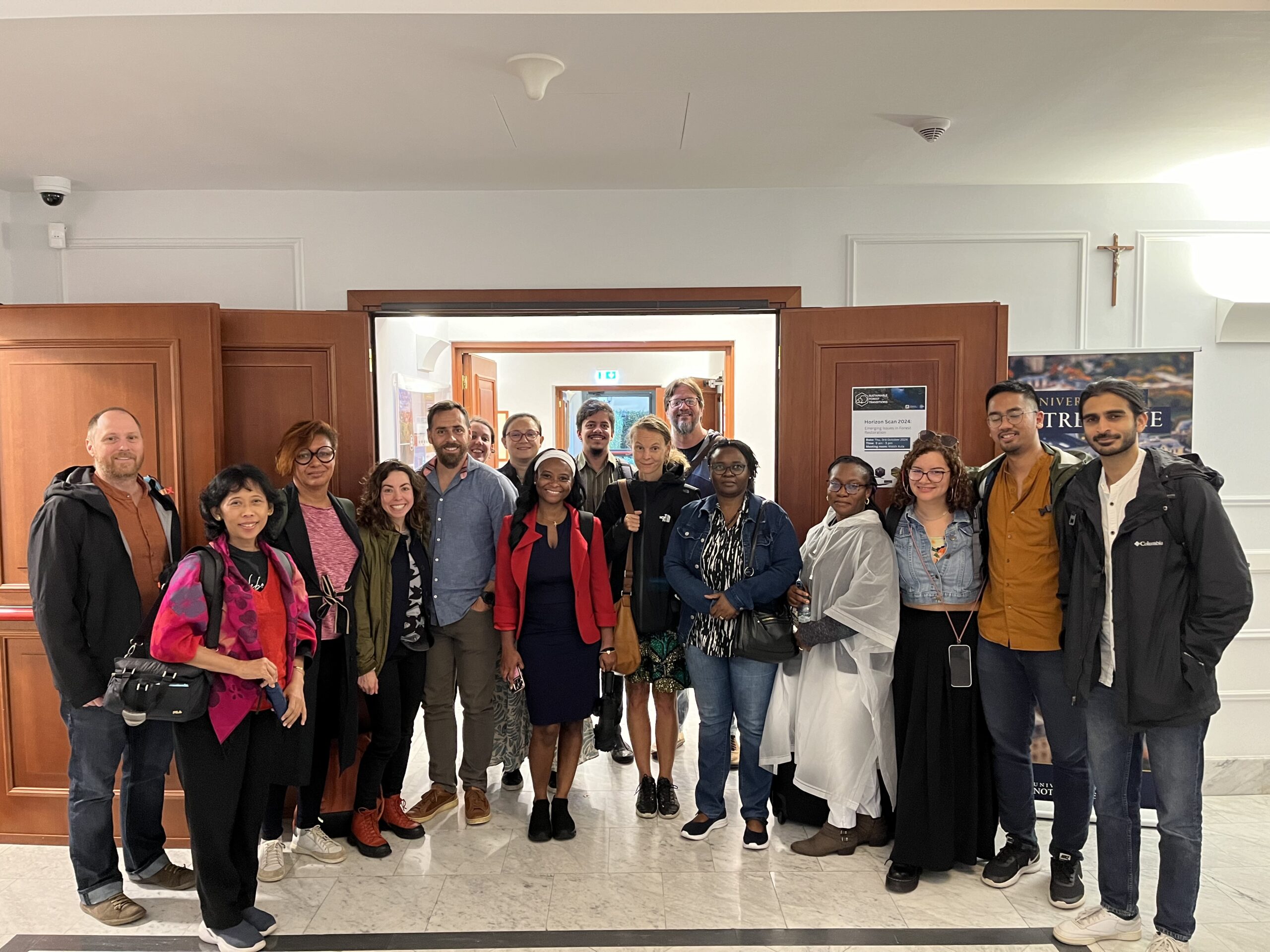Rationale and objective
Forests and forest-connected communities face unprecedented threats, ranging from deforestation and climate change to shifting geo-political priorities and private interests that are altering how forests are exploited, protected and restored and how community livelihoods and rights are supported. In parallel, dynamic policy and legal frameworks as well as emerging market tools (e.g., biodiversity and carbon markets) and technological change provide novel opportunities and challenges for forests and forest livelihoods.
A key characteristic of the multiple threats, challenges and opportunities facing forest and forest-connected communities is that they emerge quickly and are fast-paced and often have unpredictable and unintended consequences, making it difficult for policy, practice and research to respond in a timely manner and leverage opportunities effectively.
At the same time, research on forest livelihoods often remains disconnected from policy and practice or is produced on an extended timescale that reduces its practical relevance. Further, few mechanisms exist for policymakers and practitioners to inform research agendas or for these actors to engage effectively with researchers (and vice versa) to generate enhanced mutual benefits.
To address these needs, the FLARE Network in collaboration with the University of Manchester’s Global Development Institute (GDI) and the University of Notre Dame’s Pulte Institute for Global Development propose to run an annual horizon scanning exercise. This effort will improve understanding and foresight of how rapidly unfolding current events and advances are likely to influence forests and land-connected communities in the near- to medium-term. It will also increase engagement between research, practice, and policy on this topic. The horizon scan will bring together leading researchers and other stakeholders (donors, policymakers, civil society organisations, practitioners, and the private sector) to crowdsource and collectively analyse emerging and future trends challenges and opportunities for forests and forest-connected communities.
Results from this annual exercise will yield three tangible outcomes:
- First, it will generate timely insights to help forest and forest-community stakeholders make more informed decisions and better prepare for future uncertainties.
- Second, it will develop cutting edge co-produced research agendas that speak directly to evidence-user needs.
- Third, it will foster an open discussion forum for diverse stakeholders and deepen relationships between researchers, donors, policy makers, civil society organisations, practitioners, and the private sector to help maximise research impact.
People
Daniel Miller, University of Notre Dame
Johan Oldekop, University of Manchester
Project Period
Ongoing
Partners
University of Manchester’s Global Development Institute (GDI)
University of Notre Dame’s Pulte Institute for Global Development
Outputs
TBA

